-
 bitcoin
bitcoin $112715.707551 USD
-1.71% -
 ethereum
ethereum $4101.475385 USD
-3.01% -
 tether
tether $1.000644 USD
-0.02% -
 bnb
bnb $1207.619465 USD
-6.77% -
 xrp
xrp $2.501451 USD
-3.98% -
 solana
solana $202.947124 USD
-3.32% -
 usd-coin
usd-coin $1.000295 USD
0.04% -
 dogecoin
dogecoin $0.203884 USD
-4.47% -
 tron
tron $0.317154 USD
-1.72% -
 cardano
cardano $0.695009 USD
-4.43% -
 hyperliquid
hyperliquid $38.853961 USD
-8.23% -
 chainlink
chainlink $18.988674 USD
-4.64% -
 ethena-usde
ethena-usde $1.000233 USD
-0.03% -
 stellar
stellar $0.337050 USD
-3.63% -
 bitcoin-cash
bitcoin-cash $536.861728 USD
-1.28%
does blockchain use cryptography
Utilizing hashing, encryption, digital signatures, and secure communications, blockchain leverages cryptography to safeguard transactions and protect data integrity, fostering trust and transparency in digital interactions.
Oct 13, 2024 at 05:36 am

Blockchain, an innovative technology underpinning cryptocurrencies like Bitcoin, utilizes cryptography to enhance its security, transparency, and immutability. Cryptography plays a pivotal role in securing data and transactions by encrypting and verifying information within the blockchain.
2. Cryptographic FunctionsBlockchain employs various cryptographic functions:
- Hashing: Generates a unique and irreversible fingerprint (hash) of data, often referred to as a transaction.
- Encryption: Converts plaintext into ciphertext using an algorithm and key.
- Digital Signatures: Creates a unique digital token that proves the authenticity and ownership of data.
- Hashing Transaction Data: Each transaction is hashed to create a unique identifier. Any alteration of transaction details, even minor ones, results in a different hash.
- Digital Signature Verification: The sender's digital signature ensures that transactions originate from authorized accounts.
- Cryptography During Transaction:** Communications between blockchain nodes and interactions with wallets are often encrypted to protect data from eavesdropping.
- Secure Node Communication: Cryptography is used to establish secure connections between blockchain nodes, facilitating data exchange and consensus building.
- Consensus Algorithms: Cryptographic methods are incorporated into consensus algorithms to validate transactions and maintain the consistency of the blockchain.
- Private-Public Key Cryptosystem: Blockchain wallets generate a private key, which remains secret, and a corresponding public key. These keys are used for encryption and verification of transactions.
- Immutability: Cryptographic hashes ensure that transactions are irreversible once added to the blockchain. Any attempt to alter a transaction would require recalculating all subsequent hashes, which is computationally infeasible.
Cryptography is an essential component of blockchain technology, enabling it to provide secure, transparent, and immutable records of transactions. Through cryptographic functions such as hashing, encryption, digital signatures, and secure communications, blockchain ensures the integrity and authenticity of data while protecting it from tampering and unauthorized access.
Disclaimer:info@kdj.com
The information provided is not trading advice. kdj.com does not assume any responsibility for any investments made based on the information provided in this article. Cryptocurrencies are highly volatile and it is highly recommended that you invest with caution after thorough research!
If you believe that the content used on this website infringes your copyright, please contact us immediately (info@kdj.com) and we will delete it promptly.
- Coinbase and CoinDCX: Navigating the Crypto Exchange Landscape in 2025
- 2025-10-15 13:05:16
- Elon Musk, Dogecoin, and the Elusive Rally: What's the Deal?
- 2025-10-15 12:25:13
- Jamaica, ILO Principles, and Labour Commitment: Navigating a Changing World
- 2025-10-15 13:05:16
- BTC, ETH, and Crypto Presales: Navigating the Storm with MoonBull & LivLive
- 2025-10-15 11:05:13
- BlackRock's Bitcoin ETF Buzz Down Under: Australia's Crypto Scene Heats Up
- 2025-10-15 11:45:15
- Trump, Bitcoin, and Trump Media: A New York Minute on Crypto's Latest Twist
- 2025-10-15 11:05:13
Related knowledge
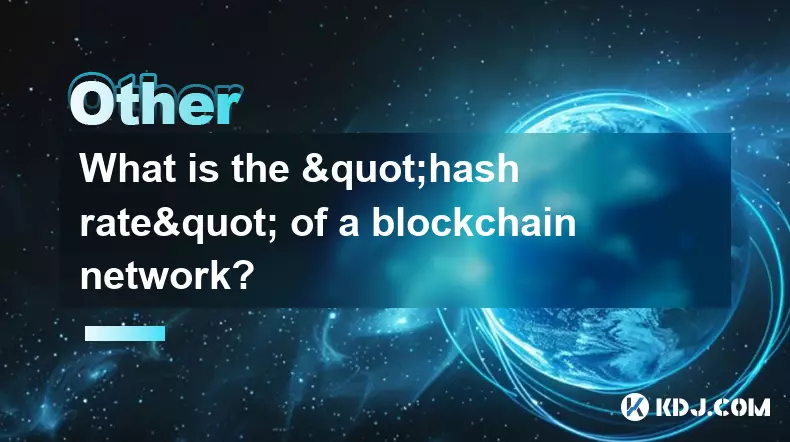
What is the "hash rate" of a blockchain network?
Oct 10,2025 at 03:55pm
Understanding Hash Rate in Blockchain Networks1. The hash rate refers to the total computational power being used to process transactions and mine new...
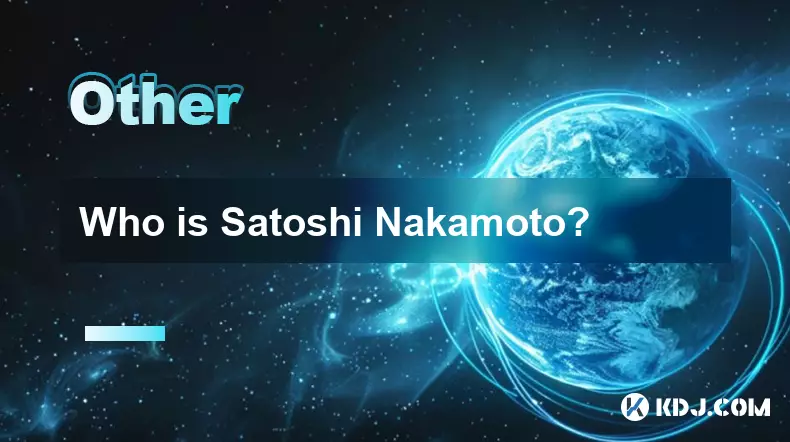
Who is Satoshi Nakamoto?
Oct 15,2025 at 01:01pm
Who is Satoshi Nakamoto?1. Satoshi Nakamoto is the pseudonymous individual or group credited with creating Bitcoin, the first decentralized cryptocurr...
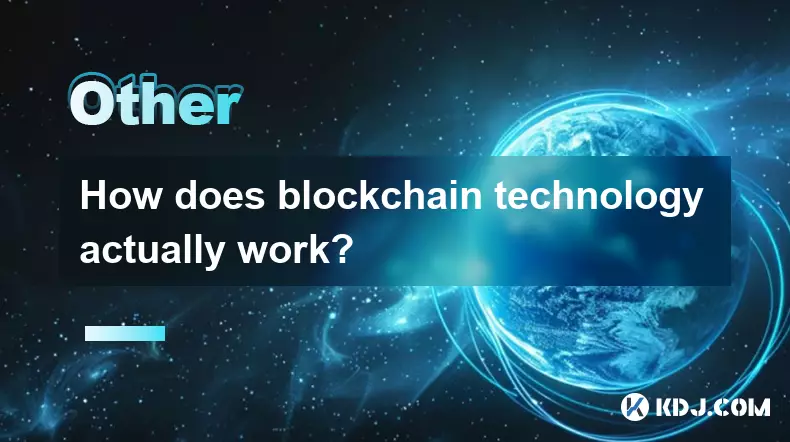
How does blockchain technology actually work?
Oct 11,2025 at 02:36pm
Understanding the Core Mechanism of Blockchain1. At its foundation, blockchain is a decentralized digital ledger that records transactions across mult...
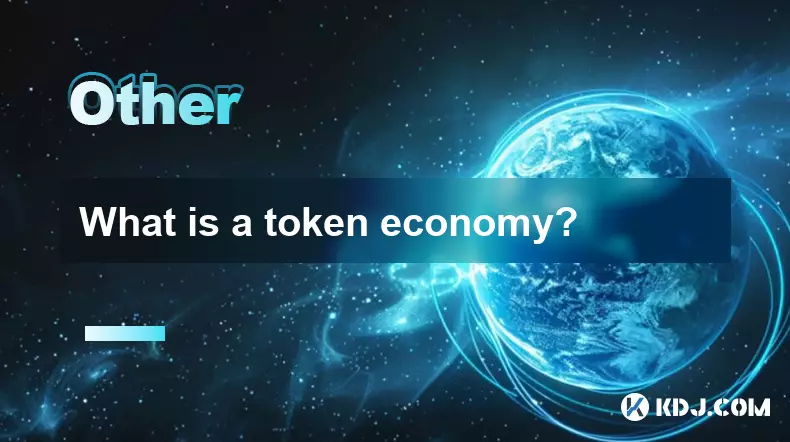
What is a token economy?
Sep 20,2025 at 12:18am
Understanding the Foundations of a Token Economy1. A token economy in the context of cryptocurrency refers to a system where digital tokens are used a...
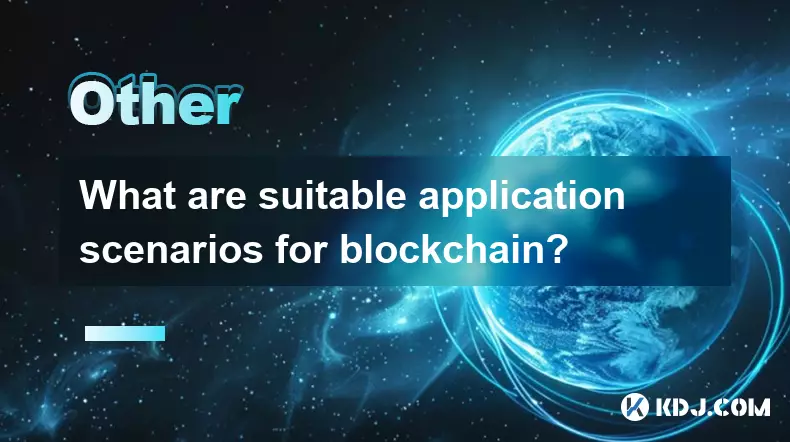
What are suitable application scenarios for blockchain?
Sep 20,2025 at 03:19am
Decentralized Finance (DeFi) Platforms1. Blockchain enables the creation of financial services without centralized intermediaries, allowing users to l...
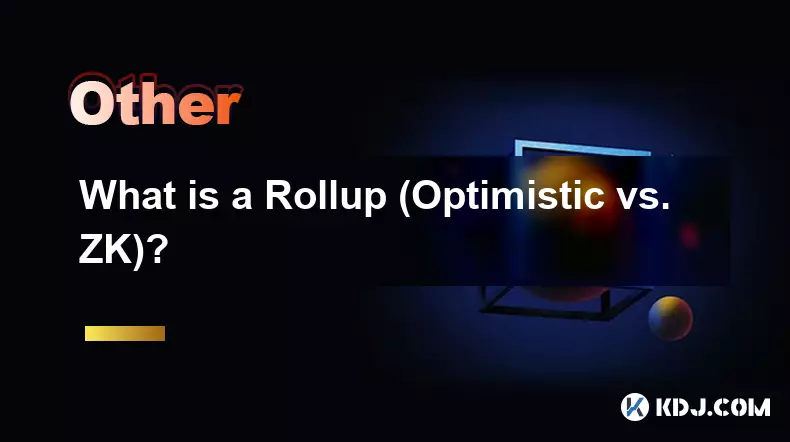
What is a Rollup (Optimistic vs. ZK)?
Sep 22,2025 at 03:00pm
Understanding Rollups in Blockchain Technology1. Rollups are layer-2 scaling solutions designed to increase transaction throughput on blockchains like...

What is the "hash rate" of a blockchain network?
Oct 10,2025 at 03:55pm
Understanding Hash Rate in Blockchain Networks1. The hash rate refers to the total computational power being used to process transactions and mine new...

Who is Satoshi Nakamoto?
Oct 15,2025 at 01:01pm
Who is Satoshi Nakamoto?1. Satoshi Nakamoto is the pseudonymous individual or group credited with creating Bitcoin, the first decentralized cryptocurr...

How does blockchain technology actually work?
Oct 11,2025 at 02:36pm
Understanding the Core Mechanism of Blockchain1. At its foundation, blockchain is a decentralized digital ledger that records transactions across mult...

What is a token economy?
Sep 20,2025 at 12:18am
Understanding the Foundations of a Token Economy1. A token economy in the context of cryptocurrency refers to a system where digital tokens are used a...

What are suitable application scenarios for blockchain?
Sep 20,2025 at 03:19am
Decentralized Finance (DeFi) Platforms1. Blockchain enables the creation of financial services without centralized intermediaries, allowing users to l...

What is a Rollup (Optimistic vs. ZK)?
Sep 22,2025 at 03:00pm
Understanding Rollups in Blockchain Technology1. Rollups are layer-2 scaling solutions designed to increase transaction throughput on blockchains like...
See all articles





















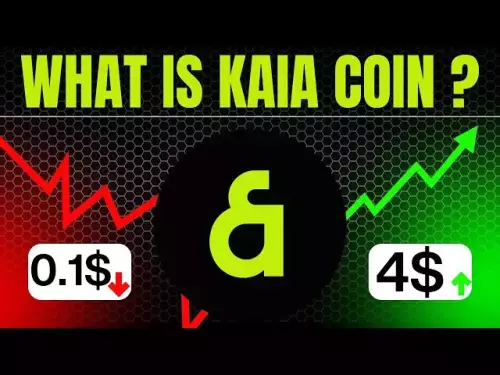




![Staking ATH: How To Stake $ATH in October 2025 with 523% APY — [Step-By-Step Guide] Staking ATH: How To Stake $ATH in October 2025 with 523% APY — [Step-By-Step Guide]](/uploads/2025/10/15/cryptocurrencies-news/videos/staking-ath-stake-ath-october-apy-stepstep-guide/68eef94d80903_image_500_375.webp)















































